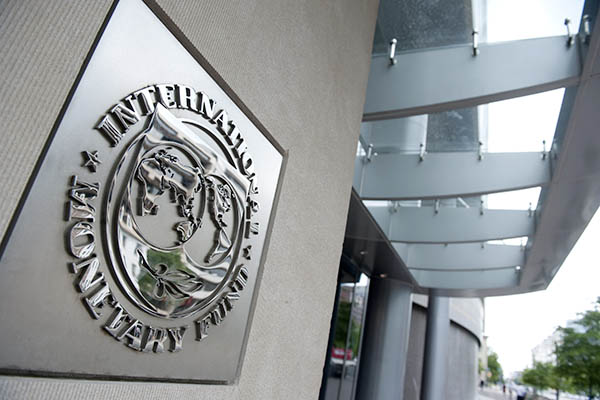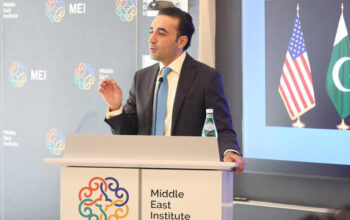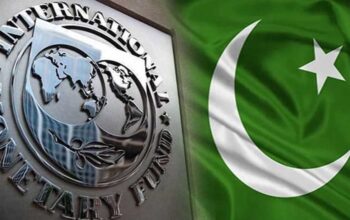Blocking progress so far is a variance of views over unbudgeted subsidies, tax-to-GDP ratio, energy sector circular debt, and the rupee’s exchange rate.
By Muhammad Ali
ISLAMABAD: Pakistan’s economic managers and the International Monetary Fund (IMF) staff are engaged in virtual parleys in a last-ditch effort to iron out their differences over the ninth review of the Extended Fund Facility (EFF) program ahead of the Christmas holiday, Independent Pakistan can report on good authority.
Although they are looking to arrive at a broad consensus towards a staff-level agreement before the onset of the holidays on December 20, the two sides have agreed to continue their online dialogue through the holidays if needed, a senior official has said.
The ongoing parleys have so far remained inconclusive mainly because of the inability of both sides to strike a consensus on four major contentious issues. Hanging in the balance is a USD 1.18 billion tranche of the USD 7 billion EFF program.
The four issues blocking progress are the energy sector circular debt that has peaked at PKR 4 trillion; the primary and budget deficit driven by a declining tax-to-GDP ratio and an expenditure overrun; unbudgeted subsidies; and administrative controls on the rupee’s exchange rate.
“The IMF finds it hard to arrive at a staff-level agreement with Pakistan because they believe there are certain deviations from the Fund program that complicate the finalisation of benchmarks for the remaining period of the program,” said one top official involved in negotiations.
The cash-bleeding energy sector is another problem area where the government has failed to deliver. Not only did the economic managers fail to cut it on a quarterly basis as agreed with the Fund, they also took the gas sector circular debt to new heights.
The successive government’s unwillingness to hike gas prices over the last two years have strapped the gas sector with more than PKR 1.5 trillion in circular debt. The IMF has advised Pakistan to increase gas tariff by 40 percent to 50 percent and then devise a roadmap to cut technical losses of the two major gas utilities.
Against this backdrop, Prime Minister Shehbaz Sharif is set to chair a high-level meeting Monday to try and tackle the problem of circular debt.
The Fund also finds the authorities leaning on the banks to keep the rupee’s exchange value at an artificially high level. This and the administrative curbs on LCs are causing importers untold problems.
On the revenue front, the IMF assesses Pakistan’s collection tax and non-tax revenue shortfall to be in the vicinity of PKR 800 billion – PKR 900 billion. However, the FBR claims it is on track to achieve its tax collection target of PKR 7,470 billion over the whole fiscal year despite some shortfall in the first half of the current fiscal, which it hopes to recoup in the second half.
The IMF argues that even if the FBR achieves its annual target of PKR 7,470 billion, the tax-to-GDP ratio is bound to decline because of the 25 to 27 percent nominal growth projected for this fiscal. They believe the FBR’s tax collection target needs to be increased accordingly to at least avoid a drop in tax-to-GDP ratio.
Pakistan’s economy saw an import compression this year on the back of administrative controls. The IMF staff think this cannot fail to dent revenue collection, especially as taxes on imports contributed 52 percent to Pakistan’s revenue last fiscal.
Expenditures overrun by the authorities is another problem area as the expenditure on debt servicing alone is projected go up by PKR 1 trillion in the current fiscal. Although the primary deficit is calculated excluding debt servicing, other expenditure overruns especially on subsidies might force the government to slash the development expenditure to adjust its books to stay on-budget.
Subsidies became the third contentious issue as the government doled out reduced electricity and gas tariff for five export-oriented industries. The government estimates that it would utilise funding of PKR 100 billion over the current fiscal year but the IMF assesses that these subsidies would cost the exchequer somewhere between PKR 180 billion and PKR 200 billion.
The Kissan package is another area whereby the IMF assessed that subsidy on tube-wells if provided would hike the circular debt by PKR 200 billion.
The government had provided relief in electricity bills in last summer but now it has caused differences over interpretations as Ministry of Finance considers it as a deferment with the understanding that deferred amount would be recovered in winter. But the Ministry of Power treated it as subsidy to be paid for by the government.
These are the issues on the table with the two sides in a race against the clock to bridge their differences before or during the holiday season, allowing the IMF to field its review mission to Pakistan immediately after the holidays, potentially paving the way for the clearance of the USD 1.18 billion tranche in late January or early February.
Copyright © 2021 Independent Pakistan | All rights reserved




